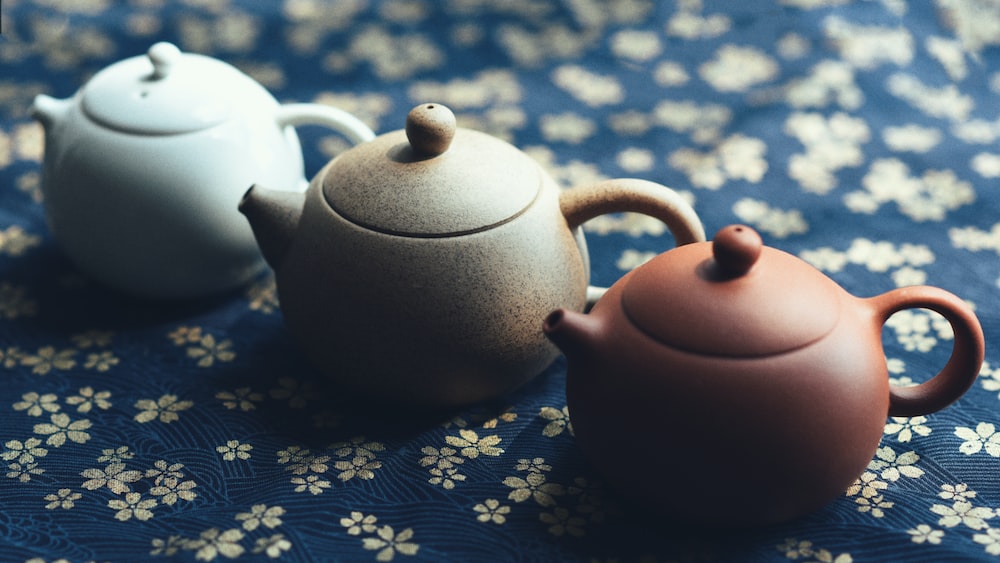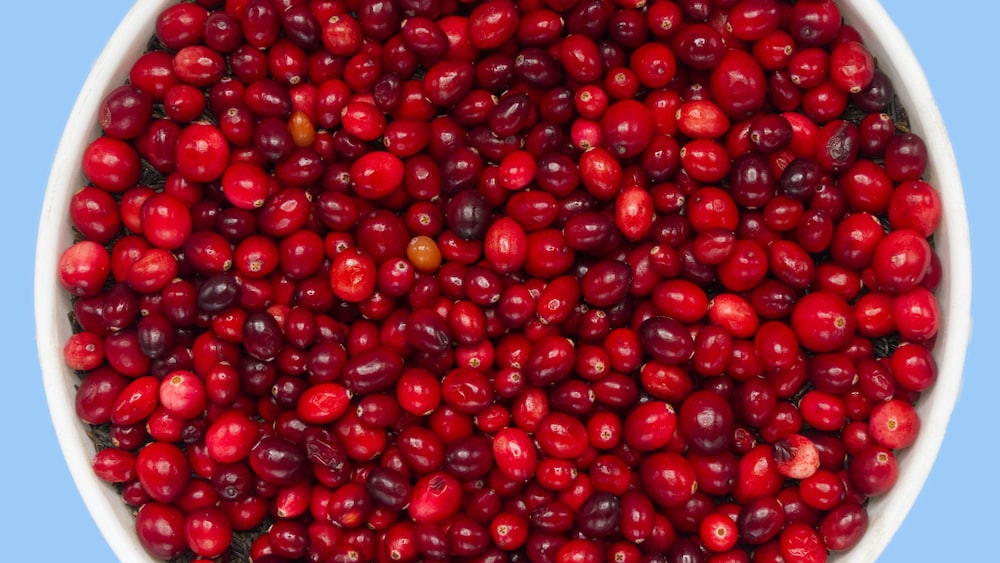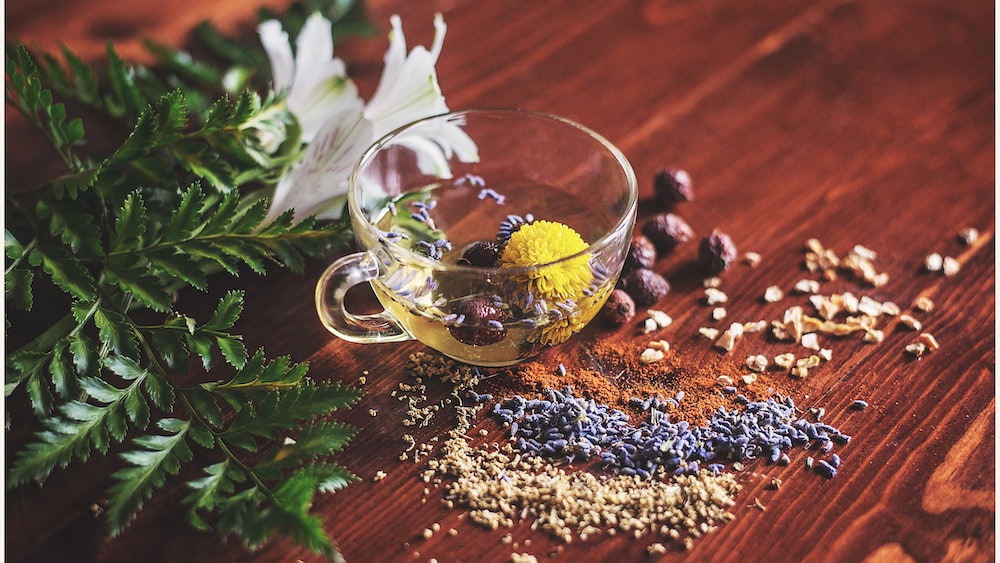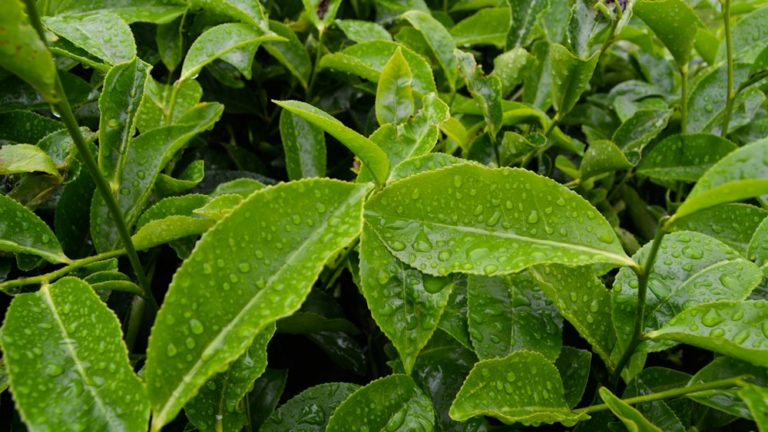17 Thyme Tea Benefits: Boost Immunity, Fight Acne, And More!

17 Thyme Tea Benefits: Boost Immunity, Fight Acne, And More!
Hello there, tea aficionados and health enthusiasts! I’m sure you’ve heard of chamomile, green and black tea, maybe even the spicy Yerba mate. But have you ever stopped to sniff the fragrant cup of thyme tea? Yes, thyme, the humble herb with a reputation for punctuating your gourmet dishes is, in fact, a wellness superstar in disguise. He’s like the wallflower who turns out to be the life of the party!
Like many of you, I am a fan of exotic brews. And when I say fan, I mean I’m so enthusiastic that even my neighborhood tea vendor gives me this look, “Oh no, here comes the ‘tea stalker!'”. Humor apart, imagine my joy when I discovered that not only does thyme taste pretty amazing in a piping hot brew, it comes packed with so many benefits, it would need a resume the size of War and Peace! So, shall we dive into the fascinating world of thyme tea, the unsung hero of the herb world? Stay with me as we embark on this flavorful expedition!
Now I’m asking you to venture forth with me, fellow tea enthusiasts! Just imagine us measuring out the time – sorry ‘thyme’ – with a teaspoon and brewing the perfect cup of health while armchair travelling to its historical roots. Are you ready? Our fascinating journey to savor thyme tea unfurls right here!
Understanding Thyme Tea
But first things first. To appreciate something truly, we must first understand it. A tea connoisseur once told me, “Son, to know a tea, you must befriend the leaf.” Wise words there. So friends, let’s get to know thyme a bit better, shall we?
What is Thyme Tea?
Thyme tea, as the name suggests, is a comforting brew derived from thyme, that aromatic herb that, I’m sure, is lolling about in your spice rack to sparkle your pastas and roasts. But let’s bust a secret – when you’re feeling under the weather, thyme can be your best buddy!
Belonging to the mint family, thyme is a perennial herb renowned since antiquity for its distinct and lovely aroma. It’s a delightful blend of sweet, slightly minty, and potent, all at once. Just a whiff of it can transport you to a sun-dappled Mediterranean garden!

Thyme tea can be your best buddy when you’re feeling under the weather, as it is a comforting brew derived from the aromatic herb known for its distinct and lovely aroma.
The History and Use of Thyme
Thyme has a history as fascinating as the myriad flavors it brings to your cup. Tracing its roots back to ancient civilizations, it was a symbol of bravery and courage amongst Greeks, who believed in bathing in it before glaring into the eyes of danger. Watch out Achilles! They even used it to perfume their rooms. Talk about decadence!
While the Greeks had their heroism, the Egyptians employed thyme for embalming their revered pharaohs. Imagine, even in death, they chose to be refined. Respect! I suppose they didn’t want to show up on the other side smelling like, well…a corpse.
When it wasn’t busy being a symbol or an embalming agent, thyme enjoyed quite a trendy stint in the Medieval Europe. Amongst chivalrous knights, and regal ladies, it became a love token. Sweet! It also basked in popularity during the Black Death, touted as a preservative against the plague. Hold on, did someone whisper ‘pandemic friendly herb’?
The Health Benefits of Thyme Tea
Now that we’re acquainted with our herb du jour, let’s spool out its health benefits. And boy, they are something! From its infectious fighters to immunity boosters, prepare to be amazed by what this little green wonder can do. So, off we go on the magic carpet of thyme tea benefits!
1. Antibacterial, Antifungal, and Antimicrobial Properties
Thyme is like that vigilant bouncer at your favorite bar – it simply doesn’t let the bad guys in! Powerful active compounds like thymol housed within this dynamic herb keep the nasty bacteria, fungus and microbes at bay. Imagine these compounds, bar stool in one hand, squaring off the intruding pathogens with the other. How’s that for protection?
Moreover, according to a study published in the Journal of Applied Microbiology, thymol could decimate the resistant bacteria that laugh in the face of antibiotics. That’s one super herb coming to our rescue!
2. Rich in Antioxidants
Is there anything that thyme cannot do? Now, brace yourself as we chronicle its superhero escapades as an antioxidant reservoir. The herb may appear humble but it secretly double-dips as an antioxidant powerhouse.
Incredibly, thyme has more antioxidants than most fruits and vegetables, an army, if you will, ready to combat those harmful free radicals that play havoc with your body. The herb’s antioxidant reserves are akin to an unassuming superhero leaping out of the shadows to save our cells from oxidative stress. Maybe it’s time we had a comic book featuring ‘Thyme – The Leafy Avenger’!
Furthermore, according to a study by Journal of Food Science and Technology, thyme has abundant phenolic antioxidants and is even used as a natural preservative in food owing to its antioxidant prowess. When was the last time you savored a cup of tea that crowded out the havoc-wreaking free radicals? Now is the thyme, true believers!

3. Calms the Nervous System
Amidst its crime-fighting jam, thyme takes out time – I meant ‘thyme’ – to be a soothing balm for our frayed nerves, too. And, I don’t know about you, but that sounds just like my cup of tea!
Indeed, incorporating a cup of thyme tea can do wonders when your nerves are wound tighter than a spool of thread. I imagine the compounds in thyme gently massaging your neurons and crooning, “Calm down, everything’s going to be alright.”
Incorporating a cup of thyme tea can do wonders when your nerves are wound tighter than a spool of thread.
4. Essential Vitamins and Minerals
Our green crusader here has a full outfit of essential vitamins and minerals. It’s a bit like opening your closet and finding every ensemble you ever dreamt of.
Rich in vitamin C, vitamin A, and copper, thyme tea infuses your body with nutrients while serenading your taste buds. Imagine them as lively cheerleaders ushering in robust health with their invigorating chants and music! It also makes an impressive show of iron, manganese, and fiber. Who knew a measly teaspoon of dried thyme had the potential to outnumber the nutrients in your daily multivitamin pill?
5. Natural Cough Remedy
Who needs a synthetic cough syrup when you’ve got a natural, tasty remedy steeping in your cup? Next time that nasty cough starts to play its guttural symphony, grab that box of thyme instead of a medicine bottle.
The herb shows off its abilities as a potent expectorant, aiding in clearing out your airways. Imagine the compounds in thyme roll up their sleeves, marching straight into the thick, uncomfortable mucus inhabiting your bronchial tubes, and carting it out with a triumphant grin!
What’s more, thyme has been often used in traditional medicine to manage respiratory ailments. So, the next time your throat presents you with a musical slur, recall the humble green superhero in your kitchen pantry!
6. Thyme Tea for Inflammation
Thursdays, tiramisu, and thyme tea – they all have a certain ring to it, don’t they? Another commonality? They, or well, at least thyme tea, can bring sweet respite from inflammation.
With its active component, thymol serving as a potent anti-inflammatory agent, thyme tea can be your ally against inflammatory conditions. It’s like dousing a roaring fire with a hydrant full of soothing thyme brew. Ah, what relief!
7. Thyme Tea for Weight Loss
Can a cup of thyme tea be the key to shedding those pesky pounds? You might be surprised! A component in thyme leaves, known as carvacrol, has been attributed in studies to stimulate fat burning. But remember, losing weight isn’t as simple as sipping tea, however, integrating thyme tea into a balanced diet and exercise plan can be a useful ingredient.
How about we compare it to a secret weapon in the battle of the bulge – like bringing a teaspoon to a sword fight. No, it’s not the main player, but it sure helps to have it on your side during the clash against calories.

8. Benefits for Lungs
From reducing coughs to fighting off respiratory tract infections, thyme tea has expanded its role from just a kitchen herb to a lung hero. Ever think what your lungs would say if they could talk? They’d probably say a hearty “Thanks!” when you sip a cup of thyme tea.
In the grand theater of our body, imagine our lungs as the audience needing a breath of fresh air from our herbal friend, thyme. I bet their applause, in the form of healthier breathing, would be deafening!
9. Thyme Tea for Acne and Skin Health
Now, let me paint a picture – you’re preparing for your big day, but lo and behold, a zit takes center stage on your face. Everything you’ve tried isn’t working. Enter thyme tea, your hero in herbal disguise. The antibacterial and anti-inflammatory properties in those humble thyme leaves can help manage acne, offering a natural way to keep your skin clear and smooth.
Ever think of zits as naughty little kids wreaking havoc? In this scenario, thyme tea is that patient, consistent babysitter who gently but effectively brings them under control. Consequently, thyme tea not only helps you keep your cool during skin crises but also ensures your skin’s health doesn’t go downhill!
Not to mention, studies have indicated that the antioxidants found in thyme can prevent skin aging, providing yet another reason to keep sipping the tea. Now, wouldn’t it be great if all skincare just required a cup of tea and a peaceful moment?
10. Helps Manage Blood Pressure
If controlling blood pressure were a marathon, thyme tea would be that energizing snack, keeping your heart pacing steadily towards the finish line. It’s been suggested that elements in thyme leaves can help to reduce high blood pressure.
Therefore, for a heart that’s galloping faster than it should, regular cups of thyme tea might coax it back to a trot. But remember, always consult your doctor before starting any natural therapies for serious health conditions.
Regular cups of thyme tea might help reduce high blood pressure, acting as an energizing snack for your heart on its marathon towards a healthier finish line.
11. Thyme Tea for Multiple Sclerosis
Although the science isn’t definitive, there are studies suggesting that the compounds in thyme tea might benefit individuals suffering from Multiple Sclerosis. These super-hero constituents of thyme might play a supportive role in managing the complicated battle that is MS.
In the comic book of wellness, could thyme tea be that unassuming sidekick that lends a helping hand during treatments? While it may not be the leading character, it has potential as a noteworthy supporting cast member.
12. May Aid Yeast Infection
When it comes to thyme tea’s aversion towards unwanted guests, it seems the party pooper also extends its snub towards yeast infections. It’s been studied that thyme tea exhibits anti-fungal activity, possibly making it a helpful aid in the treatment of yeast infections.
Think of it as that eager neighbour always ready to lend a hand, or in this case, a comforting cup of tea. And did you ever imagine a humble cup of tea could be battling yeast infections? Let your cupboards be the warriors!
Remember, while it’s all fun and games to think about it in such terms, yeast infection is a serious issue. Thyme tea can certainly contribute to the solution, but always follow medical advice.
13. Thyme Tea for Digestion
Next up, let’s focus on that tricky and complex orchestra – our digestion system. Could thyme tea be the conductor, guiding and regulating it towards a smooth performance? Well, he sure seems up for the job! The compounds in thyme have been associated with promoting digestion and relieving digestive issues like bloating and gas.
Picture your stomach and intestines grimacing under the attack of ruthless food chunks. Now imagine thyme tea moon-walking into the scene, brandishing its baton (okay, that might be their essential oils) and taming the unruly food into a choreographed digestive dance. Quite the spectacle, isn’t it?
But this isn’t all spectacle and no substance. Preclinical studies have shown that thyme extracts can reduce intestinal cramping, providing both entertainment and effects!
14. May Have Benefits for Fibromyalgia
Fibromyalgia can be like deep-sea diving without the right equipment – overwhelming and crippling. But, some research suggests that drinking thyme tea might assist in managing the symptoms of this chronic disorder. The various studies on thyme have pointed towards its possible anti-inflammatory and pain-relieving properties, beneficial in managing fibromyalgia.
It’s like thyme is that unexpected life jacket, making navigating the uncharted waters of fibromyalgia a tad bit more manageable. Picture thyme tea as that unexpected friend who pops by to help when you’re drowning in floodwaters of discomfort.
Remember, thyme tea is not a cure but can be an addition to the ways we try to cope with fibromyalgia. Consult a healthcare provider before incorporating it into your routine.
15. Boosts Immunity
Now, who’s the embodiment of the phrase “Good things come in small packages”? That’s right, it’s our familiar pal, thyme! Brimming with vitamin C and various other immune-boosting compounds, sipping thyme tea might help put up a good fight against cold, flu, and other illnesses.
What if we were to turn the tables and imagine the bacteria and viruses sneezing and sniffling because of our supercharged immune system, fortified with thyme tea? I bet they’d think twice before messing with us!
Thyme tea is a powerful immune booster, making bacteria and viruses think twice before trying to mess with us.
16. Thyme Tea for Mood Enhancement
Life can be a roller coaster, and when you’re hurtling down those steep drops, wouldn’t it be nice to have something to lift your spirits? Enter thyme tea – your uplifting in-cup companion. Drinking thyme tea might have potential mood-boosting effects, thanks to carvacrol, a compound found in thyme.
Imagine thyme tea like that spontaneous joke that brings laughter right when you least expect, but most need it. But remember, it’s important not to substitute medical treatment for serious mental health conditions with thyme tea. Always consider it as an addition, not the main course.

17. Thyme Tea for Disinfecting
Last but not least, did you know that amidst all of its other roles, thyme tea could be auditioning for the part of your next home cleaner? Remarkable, isn’t it? Studies reflect that thyme holds powerful disinfectant qualities and can be used as an eco-friendly cleaning option.
Thyme’s antiseptic properties make it a new-age knight in shining armour, banishing grime and germs away from our castles. Washing your floors might never be the same again when you’ve got a pot of thyme tea brewing for cleaning!
Still, it’s equally amazing to recognize this not just as a fantasy tale, but as a wonderful reality. The power of thyme as a disinfectant has also been recognized by authorities like the Environmental Protection Agency, which lists thymol, a compound found in thyme, as an effective disinfectant against various germs. No longer do we just appreciate thyme for its culinary values, but also its potential as a natural antiseptic.
How to Prepare Thyme Tea
Preparing thyme tea is like conducting a mini symphony in your kitchen with this humble herb playing the star role. Start by boiling two cups of water. Add two teaspoons of dried thyme or three teaspoons of fresh thyme leaves. Allow it to steep for about 5-10 minutes. Strain, and voilà! Your thyme tea is ready to warm your senses. To enhance the taste, feel free to add honey or lemon. You see, the joy is in the choice, right?
Potential Risks and Side Effects of Thyme Tea
Buckle up, my dear readers, for not everything about thyme tea is as rosy as it might seem. Like most things in life, thyme tea can also have its byproducts. Just as superheroes have their weaknesses, our herbal warrior too comes with potential risks and side effects. We’ll explore these one by one, so stay tuned!
It May Slow Blood Clotting
Thyme tea might give a snail a run for its money when it comes to slowing down! How, you ask? Well, research has shown that thyme tea might slow down blood clotting. Now, while we often associate clotting with negative scenarios, remember it also plays a vital role in our body’s healing process. If you’re scheduled for surgery or have a bleeding disorder, it’s best to play it safe and pay a visit to your GP before flirting with the thyme.
Possible Allergic Reactions
Sit tight, folks. We’re onto another side effect of thyme tea – possible allergic reactions. Yes, your favourite herb-infused brew isn’t protected by a force-field from the allergy asteroid. It could cause skin reactions or even gastrointestinal distress in some individuals. So, perhaps a small warning label isn’t completely misplaced here: “Thyme tea – handle with care if you’re sensitive to allergies!”
FAQs
1. How often can I drink thyme tea?
As for how often you can drink thyme tea, this depends on your personal preferences and body’s responses. However, moderation is key in reaping the health benefits without overwhelming your body. Consider enjoying one to two cups a day as a sensible way to integrate it into your wellness routine.
2. Can I drink thyme tea if I am pregnant or breastfeeding?
If you’re wondering whether you can drink thyme tea while pregnant or breastfeeding, it’s always advisable to consult your healthcare provider first. While thyme tea might be highly nutritious, everybody reacts differently and it’s better to play safe in such delicate times.
3. Can children drink thyme tea?
Can children join the thyme tea party? Honestly, it’s not advisable to introduce thyme tea to very young children without the green light from your pediatrician. The young guests are always welcome to the party, but let’s make sure their tickets are properly checked!
4. Can thyme tea interact with my medications?
Can the thyme tea interfere with your medications? Indeed, it might. Especially if you’re on blood-thinners, thyme tea could interact and possibly amplify the effects. So, before you ‘tea up’, do check in with your doctor.

Conclusion
Whoa, what a marathon we’ve been on, unraveling the mysteries and journeys of thyme tea! From its vibrant history to its health benefits and potential risks, we’ve seen it all.
In the end, remember that while this humble herb brew can do wonders to your health, it’s no magic potion. Be aware of the potential side effects and listen to your body’s responses. Also, make sure you consult with your healthcare provider before making it a staple in your diet, especially if you’re pregnant, breastfeeding, or on certain medications.
Thyme tea, like most good things in life, offers the best benefits when enjoyed in moderation. Tea is more than just a beverage; it’s a symphony of taste, aroma, warmth, and wellness. And thyme tea is your chance to orchestrate that symphony.
Until next time, here’s wishing you a soothing tea time adventure! Cheers!
-Zoe






